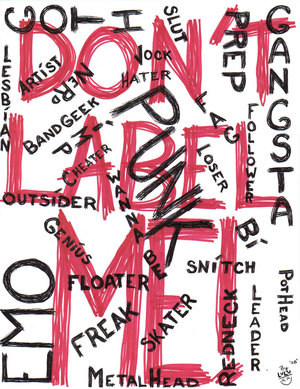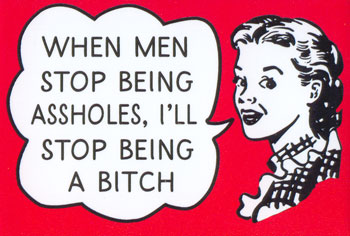Everyone will agree that whilst an education institution is no doubt necessary in our lives to prepare us for our future careers, there are some vital lessons in life one cannot learn in school. Barring the usual overly sentimental responses like love, life and friendship, there is also what I call the Singaporean heel. Our Achilles heel.
Allow me to demonstrate.
Okay, pretend you have hundred bucks. Now you have plenty of things you want to buy, all of which are in the above-thirty-dollar range. The headphones provided along with your brand new music player is uncomfortable and ugly (now the latter is a very valid reason to discard a pair of headphones if you're a girl). You know you need a good pair of headphones for travelling, however, a good pair of headphones would cost you half of your given sum. Browsing through all authorised headphones distributors at your local mall has confirmed this. Dispirited, you go home, only to find the headphones you've been eyeing selling at those unauthorised retail outlets --
for half the price.What do you do?
Do you:
a) Sod it all and go for the more expensive product available at authorised distributors
Rationale: Authorised distributors are trusted, so you're sure to get a genuine product, plus servicing if needed
b) Look at the packaging - hmm seems okay Yeah lao ban I want one!
c) Give both choices an evil eye and spend the money somewhere else instead (option not available)
I'll make an assumption here that most people would go for option b, especially students with small wallets and an even smaller wad of pocket money. Why? It's cheap, looks similar to the one sold in the store, and hey, more money can be directed elsewhere!
This is what I term as the Singaporean Mentality : The love for all things cheap / bargains.
Now, thrift is a perfectly good trait to have if you're trying to decide between at regular $2 wastepaper basket (if you go to Daiso that is), or a bloody gold one (I wouldn't put it past royals to get one). It is, unfortunately, NOT a good trait to have if you're seriously contemplating totally nixing the plastic wastepaper basket and just piling it on the ground. It is also not a good trait to have when you're deciding between a trusted brand's hair straightener and a cheap, unreliable one, if those reports about straighteners blowing up in people's hands are anything to go by. And it most certainly is a downright awful trait to have if it causes you to buy suspicious electronics for a lower price and then return home, google it, and find that the version you have is yet another cheap knock-off.
Pardon me. Right now I am feeling slightly hostile towards China due to their ignominous, shameless copying and mass manufacturing of fakes. I'm very sorry if you happen to be from China, because while I understand that China does have some reputable companies with high-quality goods, the sheen of China's emerging industries and the glimmer of its reputation is somewhat tarnished by these black sheep.
Though, quite understandably, it is my fault in the first place for buying cheap products.
WHEN WILL I EVER LEARN??????
So yup. If you think my blog is pretty senseless and bimbotic, and that I am a pompous, overbearing git, please at least learn this lesson before discarding whatever I have to say. Don't. Ever. Buy. Cheap. Products. Especially products with prices that are really really different from ones sold at the local authorised seller, like Harvey Norman. You'll live to regret it (Like I am now, the salient thought running through my mind is:OHMIGOD can I still bring this through the airport will they confiscate it at customs for being counterfeit but I thought it was real is that a reasonable defense ARGHH no I don't have aussie $220 to pay the damn fine ohmigod how how how ARGHHHHH I hate bloody china knockoffs!).
Advice before buying electronics:
1) Do your research. Ensure you know exactly how the product looks like, the accompanying accessories, the details such as the thickness of cord, the smoothness of the pads (Is it wrinkled or smooth?), the brightness of colours, the colour of the logo and its placement, the exact shape of the thing.
2) Scope online websites so as to get a rough estimate of the price
3) Check, check and recheck that the product you have corresponds to what you know. Look out for any spelling errors on the logo (e.g. Recently I saw a pair of ELECOOM headphones, and I knew they were fake straightaway as the genuine product is spelt ELECOM.) Also check that the spelling of the logo is exact to the genuine product (e.g. no caps where there shouldn't be caps, no extra dashes) This is what I call the Logo Test.
4) If the product is sold at those small retail shops, ask if you can open the box and see the product. Ensure that the plastic is sealed firmly, with no gaps.
5) Check that the 'L' and 'R' is printed correctly on the ear pieces, it should not be upside down.
6) This is very mean but check whether the object is made in China. Do not buy if 1) the object is sold at a price that is way lower than what is quoted at authorised sellers 2) the quality of the product is suspect 3) accompanying accessories (if there are) and 3) The product has failed the logo test, and the colours are way off, then don't buy it.
Of course there are other things you can check like the packaging, but often I find that unless you're very familiar with the genuine product and its packaging, you can't tell the diff between the real deal and the fake. So the logo test is by far the best way to tell.






